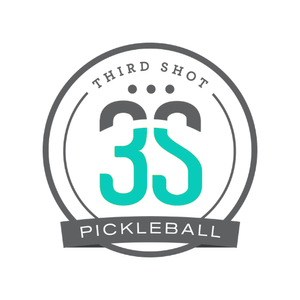An accurate portrayal of the author’s reaction to his injury.
I have been rather lucky over the course of my sporting life. Besides a few bumps, bruises and the occasional rolled ankle, I have mostly avoided serious injury -- until now.
A couple weeks ago I was playing in a local tournament. It wasn't too far from where I live and with a baby on the way, the prospect of earning a little prize money was rather appealing. I knew a person who had a similar mindset so we signed up as doubles partners.
For the last couple months, my right knee had been making its presence known. Regularly achy, I assumed that it was due to old age and inconsistent physical activity (I had, after all, spent the last few months on this new projectwhich kept me mostly at a desk in front of a computer). The sore knee is nothing, I told myself.
I arrived at the venue early, got in a decent physical warm-up (the pain was less when the knee was warm) and we were off to a good start in the tournament. The knee pain was present but manageable. That is, until the lob over my backhand.
It was a decent lob but I knew getting it out of the air is preferable to letting it get past you. So in one single motion I turned slightly to my left and jumped up to hit a routine backhand smash. I had done it a million times before. And that’s when the lights went out.
The pain was so excruciating that for a few seconds after it happened, I couldn’t see. I was down on the ground, holding my knee. For years I have people talk about feelings they have when they injure themselves: a tear, pop, or rip. In my case, the feeling was a distinctive snap and took place at the back of my right knee. I have never felt anything quite like it before.
The diagnosis from the hospital was a partial tear of the MCL. Good news, aparently, because unlike its cousin the ACL, the MCL tear doesn’t usually require surgery to heal. More than anything, it needs meds and rest to bring down the inflammation and then some deliberate rehab to get it back in shape. So for the next few days, my 9-months pregnant wife was somehow the one who did most the caregiving around our house. My 4 year old daughter didn’t like that I couldn’t chase her around the yard, but she did enjoy learning and using the word “slow-poke”.
I tell this story because it has taught me a valuable lesson as a coach. For a long time I have taken for granted what it was like to have no physical limitations and to play pain free. And when I had students who weren’t so lucky, I don’t think I have appreciated their situation as fully as I ought to have. Going through this injury — it is now at about 70% I’d say — has given me a vivid reminder of the challenges that some people I work with may face. I plan on using this experience to be more empathetic and understanding of those who aren’t as lucky as I have been.

